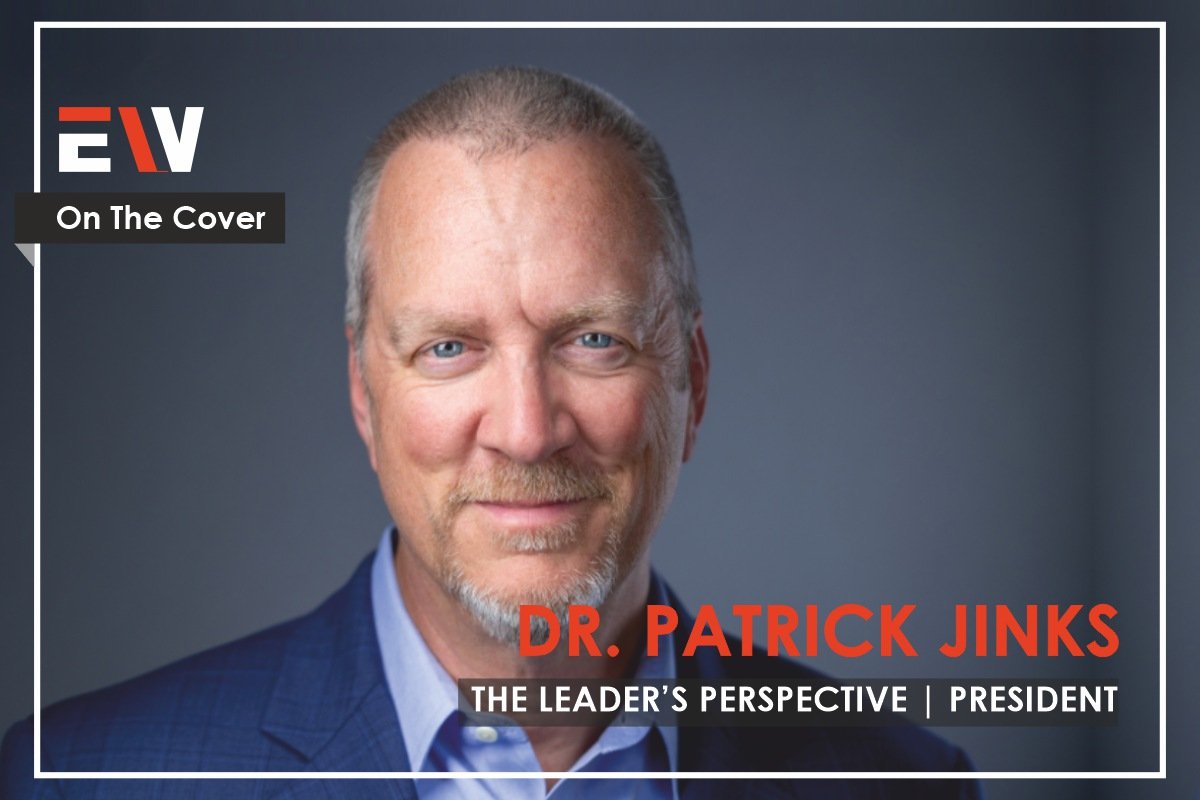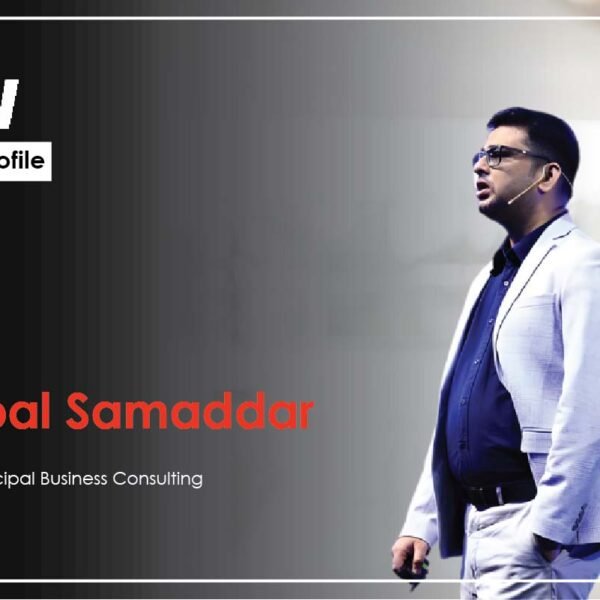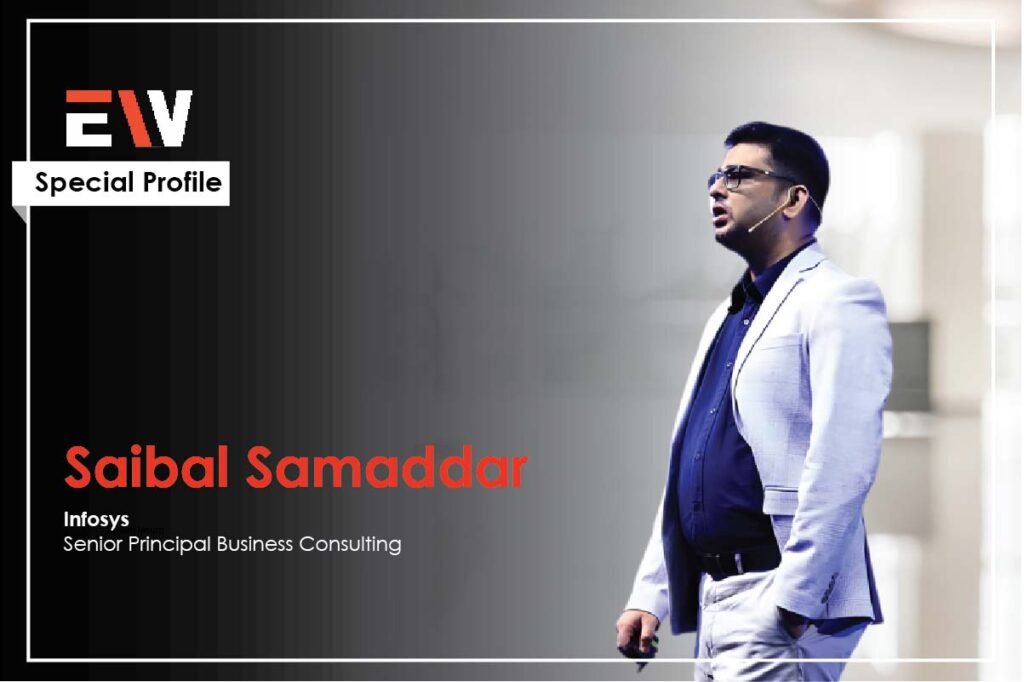Leading an organization in the 21st century is not everyone’s cup of tea. Today’s leaders must possess a plethora of skills to take their businesses toward growth. To help leaders survive and thrive in the intensely competitive marketplace, the concept of leadership coaching has been gaining recognition over the past decade. Many leadership coaches are helping aspiring leaders navigate the challenges today’s leaders face.
Dr. Patrick Jinks is one such decorated leadership coach who is making a name for himself in the industry, ironically while removing his name from the brand.
Jinks began The Jinks Perspective Group 15 years ago as an unusual combination of services: web design, photography, and leadership coaching. Today, the company has rebranded as The Leader’s Perspective (TLP) and offers a clear value to organizations and their leaders—clarity, simplicity, and alignment through leadership and strategy coaching.
Initially certified as a leadership coach by Leadership Systems, Inc. in 2010, Patrick Jinks Jinks has since achieved an additional certification from the Academy of Choice and is now a Board Certified Coach by the Center for Credentialing and Education. Combined with a Ph.D. in Organizational Leadership, Jinks’ training and experience have helped him build a unique coaching business centered primarily on helping level-up leaders in the social sector.
Coaching over Consulting
Initially started as a part-time venture, Jinks took the business full-time in 2016 and hasn’t looked back. Coaching only in the nonprofit sector at first, Jinks cleared a six-figure income in the first year, earning national attention for his unique approach to assisting nonprofit organizations. Since then, he has added corporate leaders to his client list and now coaches leaders in any sector.
Jinks believes in the philosophy, “Coaching is about the coachee–not the coach.” He aims to send this message through the rebranding to The Leader’s Perspective. “We want to draw out and elevate the best thinking of the leaders we coach–not imprint OUR perspective,” he adds.
A member of the Forbes Coaches Council, Patrick Jinks coaches executives, senior leaders, teams, and even boards of directors. He takes a coaching approach to both individuals and groups. “Coaching is coaching, whether working 1-on-1 with an executive or a team of senior leaders,” Jinks says. TLP uses the power of critical inquiry to generate the most creative and strategic thinking possible.
Questions represent the primary tool of TLP’s model. As Jinks says, TLP is not about answering clients’ questions; it is about questioning their answers, challenging their assumptions, stretching their thinking, and gaining clarity on commitment and action. Coaching differs from consulting in this way.
Every successful business leader has a mentor in their life that they look up to. For Jinks, that mentor is Dr. Jim Smith, the Founder and President of Leadership Systems, Inc. in High Point, NC, and a long-time trainer and coach. Smith expounds on the difference between coaching and consulting:
“The difference between coaching and consulting comes down to what kind of help you’re looking for. If it’s really clear they want technical, proven experiences in a corporate setting, they might be looking for a consultant—someone who’s really schooled in that dimension, maybe in an engineering, or a business, or a financial, or medical practice. Coaching, however, is a different discipline that does not propose to bring all the right solutions, but it comes asking the right questions.”
Tamela Spann, VP of Community Investments at Hollingsworth Funds in Greenville, SC, emphasizes the core tent of Jinks’ approach:
“It develops skills in the folks that he’s working with in that they do the work, and he is not imprinting his ideas, but he is pulling out their thoughts about the work they are doing, and then helping them to put it in a framework that best serves their organizations.”
The Journey to Solopreneurship
Jinks’ journey to success in the leadership coaching field began with over three decades of organizational leadership experience, in both the corporate and nonprofit sectors. His management and leadership skills were formed in corporate media, leading sales and marketing teams for Gannett newspaper properties. However, it was the U.S. United Way network that brought him deep learning in the multiple layers of internal and external leadership and gave him a keen understanding of what organizational leaders require to succeed.
“Leadership is leadership, but there are definitely unique nuances between sectors,” Patrick Jinks says. He asserts that leadership in the nonprofit space requires a more artful form of influence because so many of the stakeholders from which a leader is trying to gain action are not bound to any authority the leader has over them.
Jinks started his coaching business on the side, helping local nonprofits with coaching and strategic planning while leading his small local United Way in Virginia. However, as his United Way career led him to greater responsibility at a larger organization, something had to give.
“My board in Pennsylvania rightfully did not want my bandwidth split between my CEO charge and my business, and ultimately, my path led me to make the somewhat scary choice to fully go into business for myself and help the sector from a different seat,” Patrick Jinks Jinks explains.
Having built a vast network of relationships within the United Way system over 20 years, Jinks began his coaching business with a built-in set of clients nationwide. He acknowledges that this gave him a longer runway to sustainability than most solopreneurs enjoy. Today, TLP still serves multiple United Ways. However, they represent only a small fraction of its portfolio of clients.
Deep Coaching
TLP’s growth is partly due to a shift in how they serve their clients, evolving from an organization that engages in many singular projects to one that serves clients in deeper, more long-term engagements. This “retainer” model provides a more stable financial model for TLP while fostering a true partnership with clients and increasing the likelihood of long-term impact. Patrick Jinks calls this approach “deep coaching” as it allows him to get to the more cultural layers of an organization’s DNA.
Together SC President Madeleine McGee lauds the benefits of “deep coaching.” She appreciates the impact made possible by having TLP work with her organization on everything from strategic planning to operational planning, and from board engagement to staff leadership development. “I love the fact that we have had such amazing continuity by working with Patrick on all these aspects of our work,” McGee says.
Jinks has always emphasized his philosophy that strategy and leadership are not events. TLP coaches organizations and leaders through a continuum of thought, planning, and activities that ensure momentum and follow-through with commitments. He pushes back on client requests for one-off planning retreats, insisting that they result in documents that contain aspirations never pursued. In his best-selling 2018 book, Strategic Fail: Why Nonprofit Strategic Planning Fails and How to Fix It, Jinks contends that too many nonprofits go through strategic planning in a perfunctory manner, creating standard plans that rarely advance the organization to the next level.
United Way leader Marisel Losa shares her experiences with TLP throughout her own organizational leadership career with various organizations:
“Being able to work with someone that watched us grow and that helped us grow made all the difference. It wasn’t as if we had a strategic guide that came in one time and left, and then we had someone else come in. It flowed.”
The Executive Advantage
Executive coaching is at the heart of TLP. Jinks is a Board Certified Coach™ with a specialty designation in Executive Coaching from the Center for Credentialing and Education—the credentialing entity that certifies counselors. However, Jinks points out that while coaching is a different discipline than consulting, it is also not counseling.
“There are some similarities between coaching and counseling,” Jinks admits. He continues, “But while both approaches leverage powerful questioning, counseling often focuses on unpacking the past, while consulting is all about committed future action.”
Jinks cites numerous peer-reviewed studies that have concluded that executive coaching produces positive outcomes in effectiveness, productivity, cognitive strength, emotional intelligence, and career success. The body of research grows as the coaching profession pushes further toward full professionalization and credibility. The rigor involved in achieving legitimate credentials from such entities as The Center for Credentialing and Education (CCE) and the International Coach Federation (ICF) has improved the profession by giving leaders more reasons to be confident in the process and the investment.
Training other Coaches
As TLP celebrates 15 years of coaching, Jinks is taking the next step in growing the business, the profession, and the impact on clients. In 2024, TLP launched Organizational Leadership Training (OLCT). The 30-hour online training program intends to certify other coaches and ultimately meet CCE standards, qualifying as approved hours for achieving board certification. “We are in the process of securing accreditation from CCE, and feel confident our content meets the standard because I have experienced the standard through my own certification,” Jinks says.
OLCT will train both internal coaches (leaders inside organizations who are looking to add the coaching tool to their management repertoire) and external coaches (those who are current or aspiring professionals in the coaching field looking to build successful coaching businesses). The program includes training in coaching models, the psychology of coaching, ethics, assessment, and building a successful coaching practice.
“Coaching has been transformational for me and for countless clients we have served, so I want to grow the profession and empower others to deliver excellence and value in coaching,” Jinks adds.
Moving Forward
Jinks asserts that one of the advantages of coaching over consulting is its adaptability across disciplines. Coaching does not require expertise in a particular business or industry field. It only requires expertise in coaching. Examples of the diverse projects TLP has helped to succeed include:
- Coaching The National Association of Free and Charitable Clinics, in partnership with Americares and Loyola University, toward a Roadmap to Health Equity framework for achieving and measuring quality outcomes in healthcare.
- Coaching a Chinese executive on trust building and communication in a U.S.-based manufacturing company.
- Coaching the CEO of a national nonprofit on navigating a nationwide hiring crisis.
- Coaching a corporate VP toward creating greater connections and relationships with her team.
“We’re just getting started,” says Jinks. The next steps include adding certified adjunct coaches to the team, training other coaches, and initiating more “deep coaching” engagements with extraordinary organizations.
Jinks’ podcast, The Leadership Window, explores leadership in the social sector and enjoys global success as a Feedspot® Top 10 podcast in its genre. Jinks posits that the success of those who are indicative of the hunger for leadership development, support, and growth among all leaders—not just nonprofit leaders.
For more information about Dr. Patrick Jinks and The Leader’s Perspective, visit www.TheLeadersPerspective.com.










